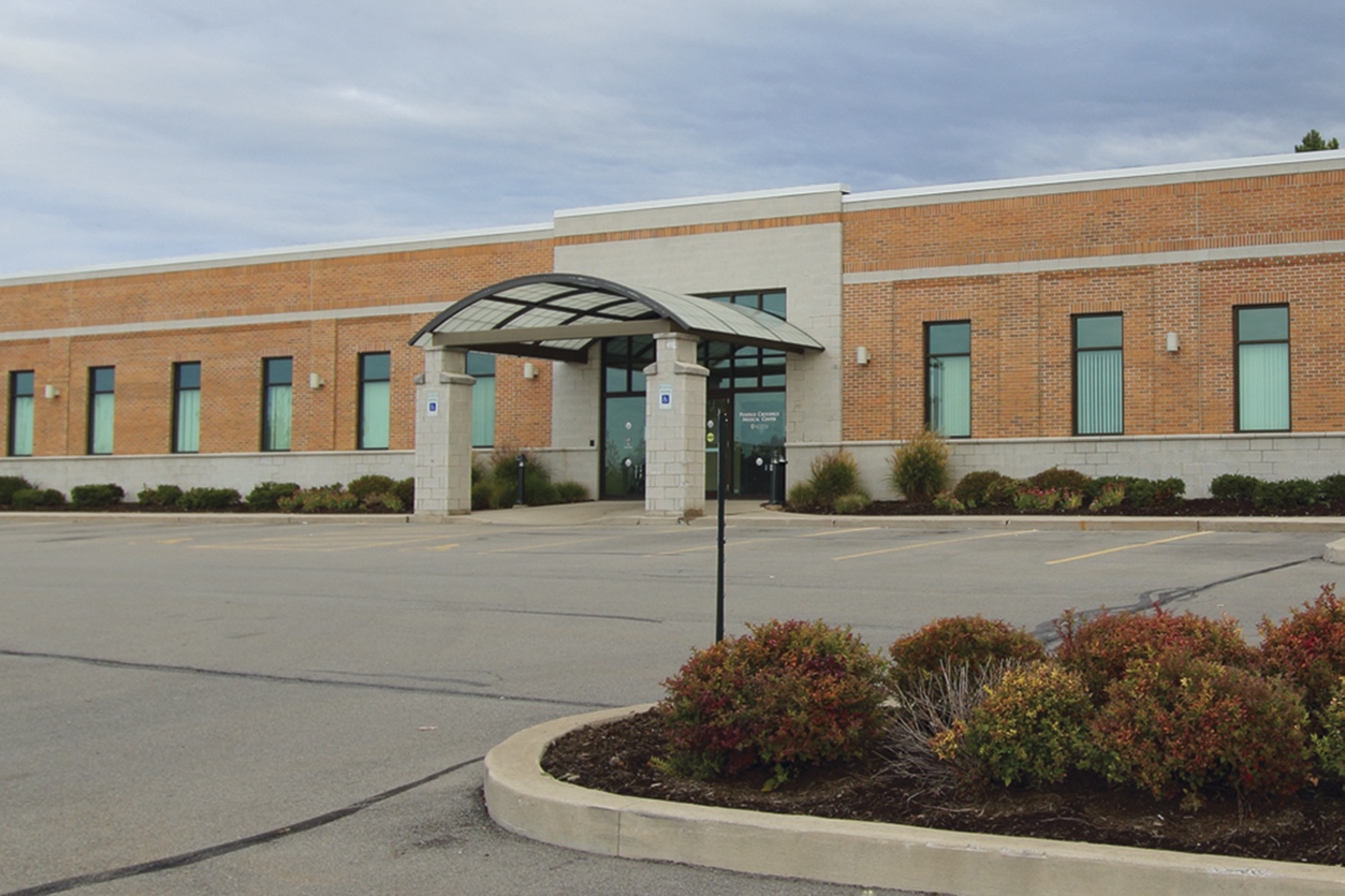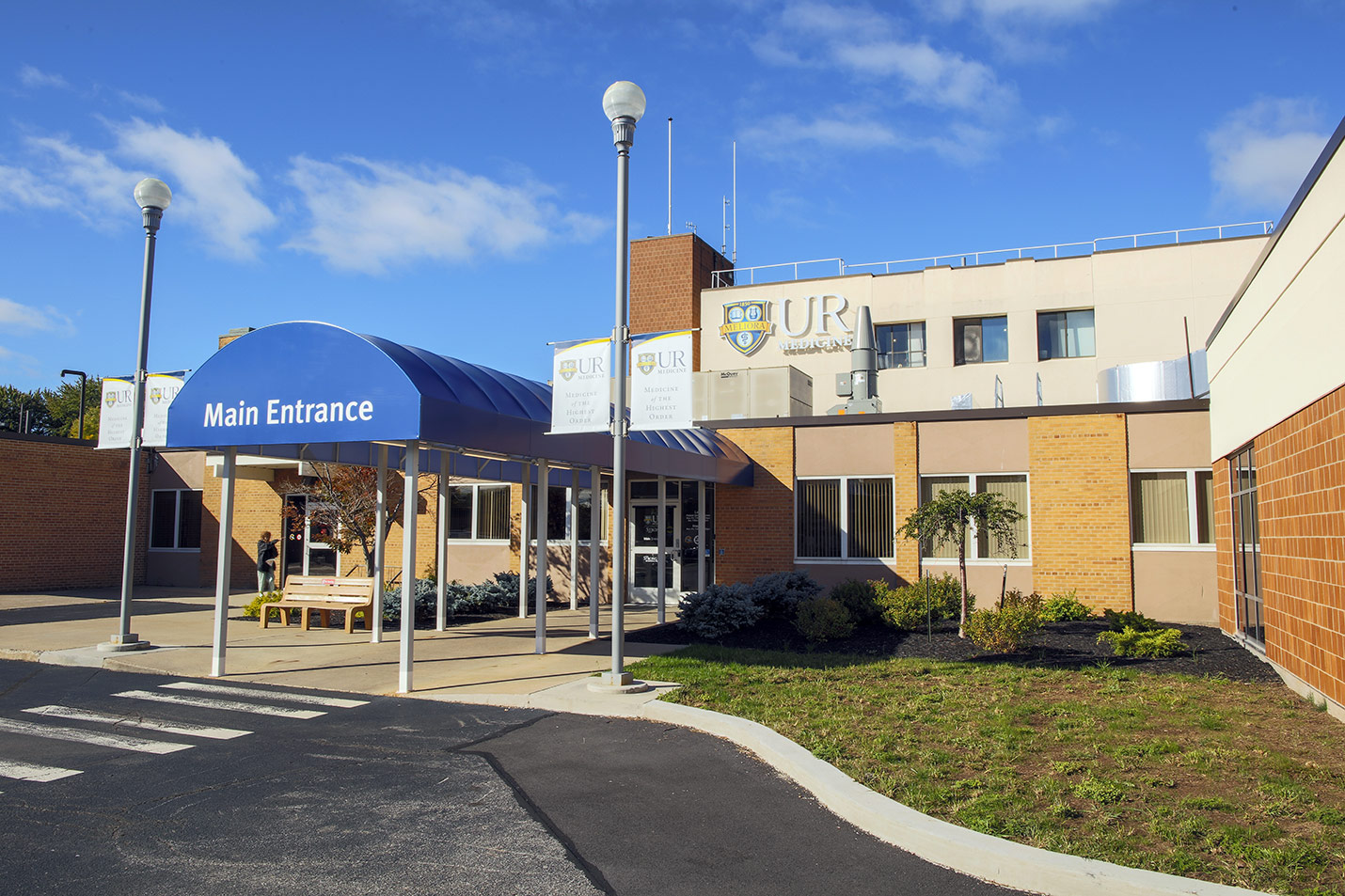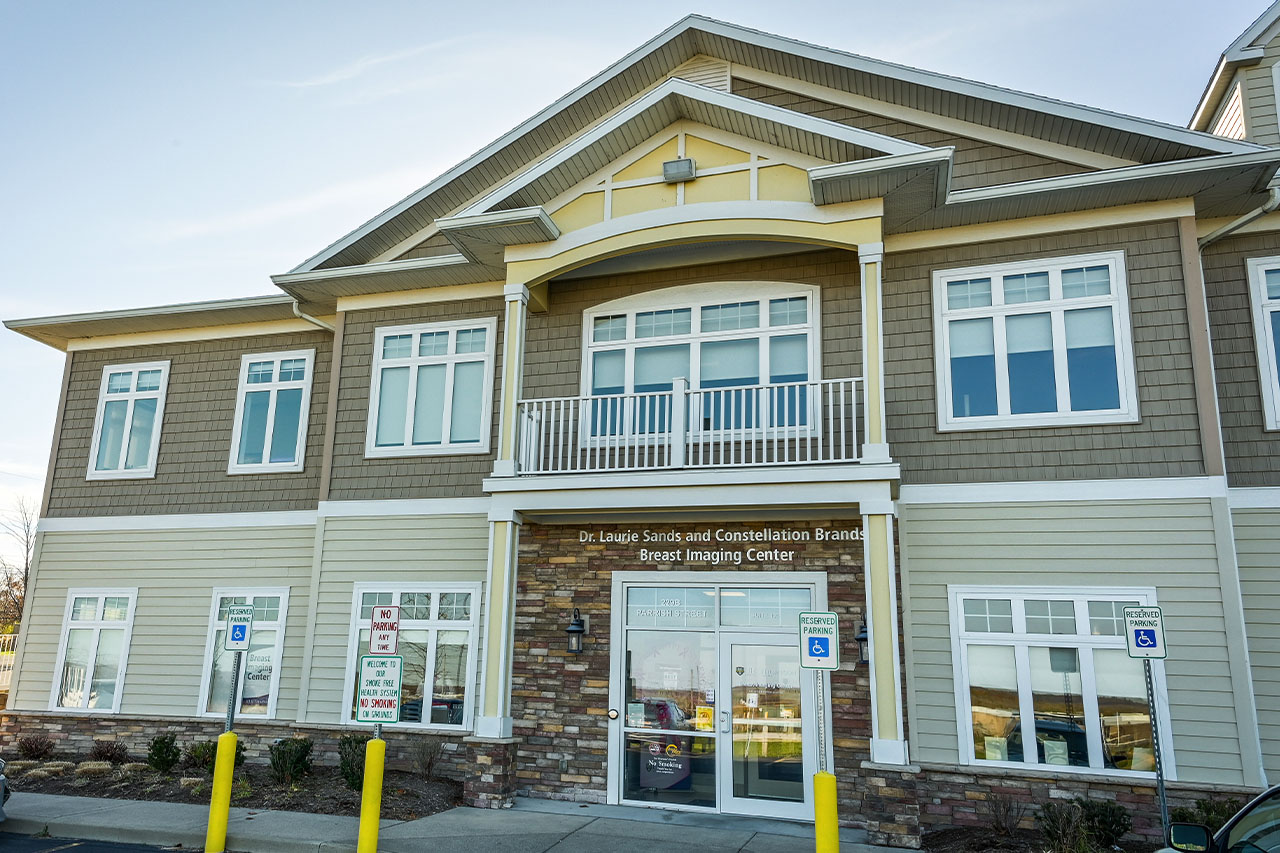Dense Breasts
What Are Dense Breasts?
Dense breasts are common and can be found in almost half of women over the age of 40. Dense breast tissue is composed of milk glands, milk ducts, supportive tissue (dense breast tissue) and fatty tissue.
What Causes Dense Breast Tissue?
It’s not clear why some women have a lot of dense breast tissue and others do not; however, you are more likely to have dense breasts if you are in your 40s or 50s, are premenopausal or take hormone therapy for menopause. For most women, breasts become less dense with age.
How Does Dense Breast Tissue Look on a Mammogram?
When viewed on a mammogram, dense breast tissue appears as a solid white area, which makes it difficult to see through. Breast tissue that is not dense appears dark and transparent. Women with dense breasts have an increased risk of getting breast cancer. The denser the breast, the greater the risk
UR Medicine's Treatments for Dense Breasts
At UR Medicine, our experts use additional imaging for women with dense breasts. This is important because dense breasts can make it harder to detect cancer on a screening mammogram. Although screening mammograms can detect cancers, experts often recommend additional screening methods to more accurately make a diagnosis.
How Are We Advancing Technology for Dense Breasts?
3D Mammography/Tomosynthesis
Tomosynthesis mammography, also known as 3D mammography, is a new method of screening for breast cancer. The test involves taking several X-rays of each breast from various angles to create a detailed 3D image.
Tomosynthesis finds invasive cancers at a 40% higher rate than regular mammograms. It can also pinpoint hard to find cancers that may otherwise be unnoticed, particularly in areas of dense tissue.
Contrast Enhanced Mammography
Contrast-enhanced mammography uses iodinated intravenous (IV) contrast along with a standard mammogram for imagery. The process is similar to a standard mammogram, with the addition of an injection of the contrast. CEM is more effective for cancer detection than a standard mammogram for women with dense breasts.
SoftVue™
The SoftVue™ screening tool was designed to be a more comfortable experience for patients. Patients lie chest-down on a table and each breast is immersed in a warm water bath as it’s being scanned. A small imaging ring encircles the breast and collects images. It only takes about three minutes per breast.
SoftVue™ has proven to detect 20% more cancers when combined with standard mammography for women with dense breasts.
In addition, rather than providing just one type of image to review for possible cancers, SoftVue produces four different image sets of each breast that radiologists can use to determine if cancer is present. That is four times the imaging power, giving radiologists more diagnostic confidence compared to just reviewing mammograms alone. SoftVue does not replace your screening mammogram.
What Sets Us Apart?
The UR Medicine Breast Imaging Center is designated a Breast Imaging Center of Excellence by the American College of Radiology’s (ACR) Commission on Quality and Safety and the Commission on Breast Imaging for a three-year term. The ACR Breast Imaging Center of Excellence designation signifies that UR Medicine Breast Imaging provides these services to the greater Rochester area and surrounding communities at the highest standard of radiology profession.
Our expertise is backed by research. As part of an academic medical center, our providers are continuously working to advance the detection and assessment of breast disease. We invest in cutting-edge technology.
We collaborate with breast specialists at UR Medicine’s Wilmot Cancer Institute to ensure that all necessary treatments and support is available.
Locations
View All LocationsWe serve you in the Rochester metropolitan area and surrounding region.
View All Locations15 locations
Anthony L. Jordan Health Center
82 Holland Street
Rochester, NY 14605
St. James Medical Office Building
7309 Seneca Road North, Suite 113, Entrance E
Hornell, NY 14843
Patient Education & Support
The Breast Health program at Wilmot Cancer Institute offers evaluation for any of the following concerns: family history of breast cancer, concerns with new imaging findings, newly discovered lumps, dense breasts, exposure to chest radiation, or any other worry.
Insurance and Billing
Some insurances may not cover or apply additional fees to certain screening methods. Please check with your insurance company for coverage options. If you do not have insurance, please ask us about our financial assistance programs.





